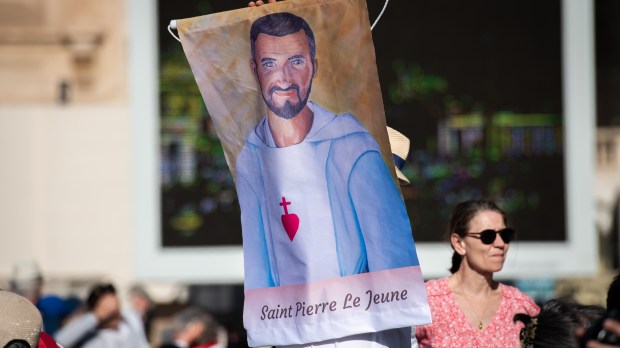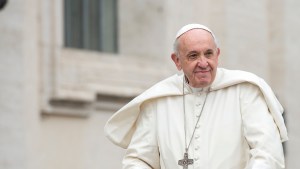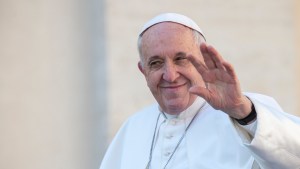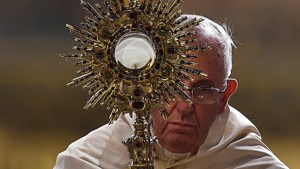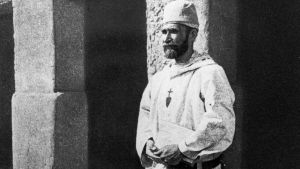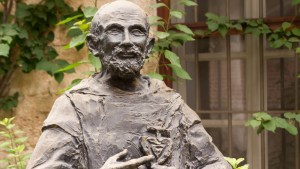Pope Francis gave thanks to St. Charles de Foucauld, whom he canonized on May 15, 2022, saying the French saint’s spirituality “did me so much good when I was studying theology” and “helped me so much to overcome crises.”
The Pope shared his personal devotion with the members of the spiritual family of Charles de Foucauld (1858-1916), whom he received in audience on May 18, 2022.
The Pope met with the 50 or so representatives shortly before Wednesday’s general audience in an office off Paul VI Hall.
I would also like to thank Saint Charles de Foucauld because his spirituality did me so much good when I was studying theology, a time of maturation and also of crisis, and which came to me through Father Paòli and through the books of [René] Voillaume, which I read constantly, and helped me so much to overcome crises and to find a way of Christian life that was simpler, less Pelagian, closer to the Lord. I thank the Saint and bear witness to this, because it did me so much good.
Voillaume is the founder of the Little Brothers of Jesus, an order inspired by Charles de Foucauld. The Little Brothers were founded in 1933 in France and first established in French Algeria in Northern Africa.
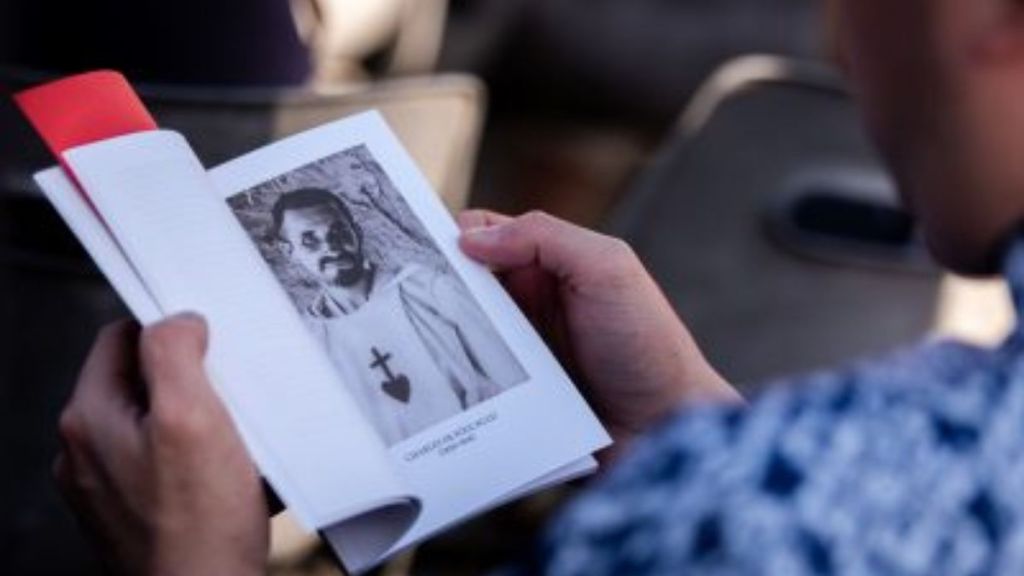
The Pope warned against a “Pelagian” concept of holiness in his homily at the Mass where he canonized St. Charles. The heresy promoted by Pelagius in the early 400s was a rejection of original sin, and promoted the idea that with our own efforts, humans can attain righteousness.
At times, by over-emphasizing our efforts to do good works, we have created an ideal of holiness excessively based on ourselves, our personal heroics, our capacity for renunciation, our readiness for self-sacrifice to achieve a reward. This can at times appear as an overly “pelagian” way of viewing life and holiness. We have turned holiness into an unattainable goal. We have separated it from everyday life, instead of looking for it and embracing it in our daily routines, in the dust of the streets, in the trials of real life and, in the words of Teresa of Avila to her Sisters, “among the pots and pans.” Being disciples of Jesus and advancing on the path of holiness means first and foremost letting ourselves be transfigured by the power of God’s love. Let us never forget the primacy of God over self, of the Spirit over the flesh, of grace over works. For we at times give more importance to self, flesh and works. No, the primacy is that of God over self, of the Spirit over the flesh, of grace over works.
Prophet of our time
In his brief address, the Successor of Peter called St. Charles a “a prophet for our time” who “knew how to bring to light the essentiality and universality of faith.”
What’s essential to the faith for St. Charles, the Pope said, the “meaning of believing” is condensed “into two simple words, in which there is everything: ‘Iesus – Caritas’; and above all, returning to the spirit of the origins, the spirit of Nazareth.”
I hope that you too, like Brother Charles, will continue to imagine Jesus who walks in the midst of the people, who patiently carries out laborious work, who lives the daily life of a family and of a city. How happy the Lord is to see that he is imitated in the way of smallness, humility, sharing with the poor! Charles de Foucauld, in the silence of the hermit’s life, in worship, and in service to his brothers, wrote that while “we are inclined to favor works, whose effects are visible and tangible, God gives first place to love and then to sacrifice inspired by love and to obedience derived from love’ (Letter to Marie de Bondy, 20 May 1915).”
“As a Church we need to return to the essential – return to the essential! – not to get lost in so many secondary matters, at the risk of losing sight of the simple purity of the Gospel,” the Pope urged.
And universality, for St. Charles de Foucauld, was about living “his Christian existence as a brother to all, starting from the smallest.”
He wrote: “I want to accustom all Christians, Muslims, Jews and idolaters to consider me as their brother, the universal brother” (Letter to Maria de Bondy, 7 January 1902). And to do this, he opened the doors of his house so that it might be “a port” for all, “the shelter of the Good Shepherd.” I thank you for bearing this witness, which does so much good, especially at a time when there is a risk of closing in on particularisms, of increasing distances, of losing sight of one’s brother. We unfortunately see this in the news every day.
The clearest witness to Jesus: Joy
Finally the Holy Father pointed out how St. Charles was an apostle of joy.
Brother Charles, in the hardships and poverty of the desert, remarked: “My soul is always in joy” (Letter to Fr. Huvelin, 1 February 1898). Dear sisters and brothers, may Our Lady grant you to cherish and nourish the same joy, because joy is the clearest witness we can give to Jesus in every place and at every time.
A favorite of Francis
The holy hermit of the Sahara is a reference figure for the Argentine Pope. He has mentioned him in two encyclicals and three apostolic exhortations, and he offered his biography to the members of the Curia at the end of his greeting on December 21, 2020.
The association of the spiritual family of Charles de Foucauld has 20 groups founded between 1909 and 2007, with more than 13,000 members worldwide. Among them are the Little Brothers and Little Sisters of Jesus, the Little Brothers and Little Sisters of the Gospel, and the Priestly Fraternity.
